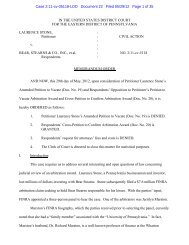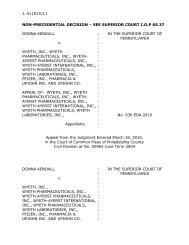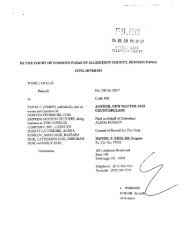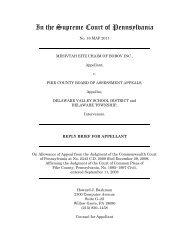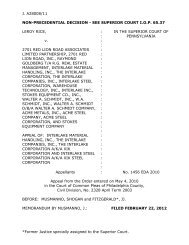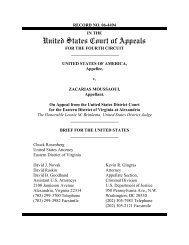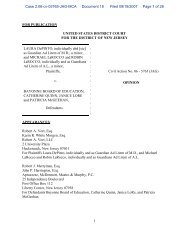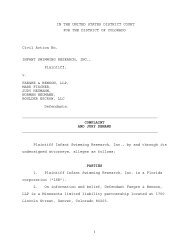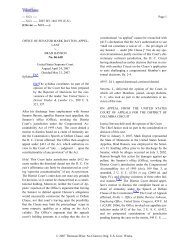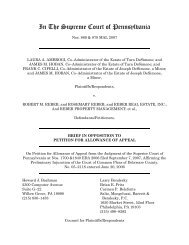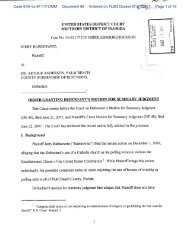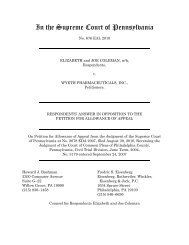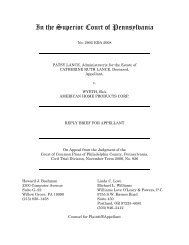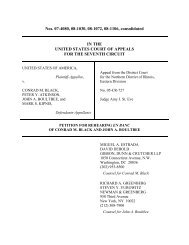Parm v. Shumate - How Appealing
Parm v. Shumate - How Appealing
Parm v. Shumate - How Appealing
Create successful ePaper yourself
Turn your PDF publications into a flip-book with our unique Google optimized e-Paper software.
Case 3:01-cv-02624-RGJ-JDK Document 139-1 Filed 08/29/2006 Page 10 of 12<br />
Proc. art. 213. 11 The United States Supreme Court has explained that “probable cause to justify<br />
an arrest means facts and circumstances within the officer’s knowledge that are sufficient to<br />
warrant a prudent person, or one of reasonable caution, in believing, in the circumstances shown,<br />
that the suspect has committed, is committing, or is about to commit an offense.” Michigan v.<br />
DeFillippo, 443 U.S. 31, 37 (1979).<br />
Louisiana courts have explained probable cause as the following:<br />
Probable cause to arrest exists when the facts and circumstances within the officer’s<br />
knowledge are sufficient to justify a man of ordinary caution in believing that the person<br />
to be arrested has committed a crime . . . . The determination of probable cause, although<br />
requiring something more than bare suspicion, does not require evidence sufficient to<br />
support a conviction. Probable cause, as the very name implies, deals with probabilities .<br />
. . . The determination of probable cause, unlike the determination of guilt at trial, does<br />
not require the fine resolution of conflicting evidence that a reasonable doubt or even a<br />
preponderance standard demands, and credibility determinations are seldom crucial in<br />
deciding whether the available evidence supports a reasonable belief that the person to be<br />
arrested has committed a crime . . . . The determination of probable cause involves factual<br />
and practical considerations of everyday life on which average men, and particularly<br />
average police officers, can be expected to act.<br />
State v. Simms, 571 So.2d 145, 148-49 (La. 1990).<br />
Magistrate Judge Kirk found that Sheriff <strong>Shumate</strong> arrested the Plaintiffs for trespassing<br />
without probable cause “because the sheriff should have known that the plaintiffs were legally<br />
authorized to be upon the waters.” [Doc. No. 82, p. 28].<br />
The Court disagrees with Magistrate Judge Kirk’s finding. As discussed above, the<br />
Second Circuit, La. Civ. Code art. 456, and Louisiana jurisprudence have not allowed fishing or<br />
hunting on privately owned banks of navigable waters because these activities are not incidental<br />
11 The constitutional torts of false arrest, unreasonable seizure, and false imprisonment<br />
also require a showing of no probable cause. See Brown v. Lyford, 243 F.3d 185, 189 (5th Cir.<br />
2001).<br />
10



